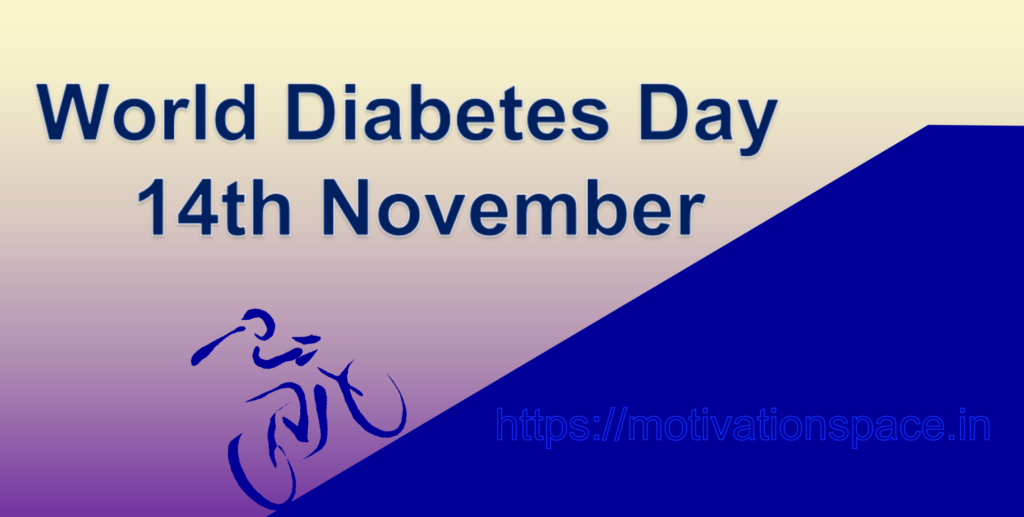Contents of this article
World Diabetes Day: Shining a Light on the Silent Epidemic. World Diabetes Day, celebrated on November 14th each year, is a global reminder of the growing diabetes epidemic and an opportunity to raise awareness about this chronic condition. Established by the International Diabetes Federation (IDF) and the World Health Organization (WHO), this observance seeks to shine a light on the impact of diabetes on individuals, communities, and healthcare systems worldwide. In this blog, we delve into the history, significance, and key themes of World Diabetes Day, while exploring the complexities and challenges of diabetes management and prevention.
Understanding Diabetes: A Global Health Challenge
Diabetes is a chronic medical condition characterized by elevated blood sugar levels (hyperglycemia). There are several types of diabetes, but the most common are Type 1 and Type 2 diabetes. Here’s an overview of the different types:
Type 1 Diabetes:
This is an autoimmune condition in which the body’s immune system mistakenly attacks and destroys insulin-producing beta cells in the pancreas. People with Type 1 diabetes require lifelong insulin therapy to regulate their blood sugar levels.
Type 2 Diabetes:
Type 2 diabetes is characterized by insulin resistance, where the body’s cells do not respond effectively to insulin, and reduced insulin production by the pancreas. It is often associated with lifestyle factors such as poor diet and sedentary behavior.
Gestational Diabetes:
This type of diabetes occurs during pregnancy and typically resolves after childbirth. However, women who have had gestational diabetes are at increased risk of developing Type 2 diabetes later in life.
The Global Impact of Diabetes
Diabetes is a global health challenge with significant impact, as demonstrated by the following statistics:
Prevalence:
The number of people with diabetes is increasing worldwide, with the global prevalence rising from 4.7% in 1980 to 9.3% in 2019.
Economic Burden:
Diabetes imposes a substantial economic burden on healthcare systems, individuals, and society. In 2019, the global healthcare expenditure on diabetes reached $760 billion.
Complications:
Diabetes can lead to a range of complications, including heart disease, stroke, kidney disease, vision problems, and lower limb amputations.
Premature Mortality:
Diabetes is a leading cause of death, and it contributes to many deaths from cardiovascular disease, kidney disease, and other related complications.
Global Distribution:
Diabetes is no longer confined to high-income countries. It affects people of all ages and backgrounds in both developed and developing nations.
The Origins and Significance of World Diabetes Day
World Diabetes Day was established in 1991 by the International Diabetes Federation (IDF) and the World Health Organization (WHO) in response to the growing concerns about the rising global incidence of diabetes. The date, November 14th, was chosen to coincide with the birthday of Sir Frederick Banting, a Canadian scientist who, along with Charles Best, co-discovered insulin in 1921.
The significance of World Diabetes Day lies in its role as a platform to:
Raise Awareness:
It spreads knowledge about diabetes, its risk factors, and the importance of early diagnosis and management.
Advocate for Action:
World Diabetes Day urges governments, healthcare organizations, and individuals to take proactive measures to combat the diabetes epidemic.
Support People with Diabetes:
It provides support and resources to individuals living with diabetes, helping them manage their condition effectively.
Promote Research:
The day promotes research into diabetes prevention, management, and potential cures.
Address Stigma:
World Diabetes Day works to dispel myths and stereotypes surrounding diabetes and reduce the stigma associated with the condition.
The Global Diabetes Community
World Diabetes Day is more than just a date on the calendar; it is a global movement uniting individuals, organizations, and communities to address the diabetes challenge. Here are some key stakeholders in the fight against diabetes:
International Diabetes Federation (IDF):
As the custodian of World Diabetes Day, IDF provides resources and support for activities worldwide. It also organizes the global blue circle symbol to represent diabetes.
World Health Organization (WHO):
WHO collaborates with IDF to raise awareness about diabetes and its prevention and management.
Diabetes Associations:
National and regional diabetes associations play a vital role in advocating for diabetes awareness and support within their communities.
Healthcare Providers:
Physicians, nurses, dietitians, and other healthcare professionals are on the front lines of diabetes management, providing care, education, and support.
Researchers:
The diabetes research community works to advance our understanding of the condition, develop new treatments, and explore potential cures.
Individuals with Diabetes:
People living with diabetes have a voice and play a critical role in raising awareness, advocating for themselves, and sharing their experiences to inspire and support others.
The Themes of World Diabetes Day
Each year, World Diabetes Day focuses on specific themes to guide activities and discussions. These themes help shed light on different aspects of diabetes management and prevention. Some past themes include:
2020: “Nurses Make the Difference”:
Recognizing the crucial role of nurses in diabetes care and management.
2019: “Family and Diabetes”:
Highlighting the role of the family in supporting individuals with diabetes.
2018: “The Family and Diabetes”:
Emphasizing the importance of family in diabetes management.
2017: “Women and Diabetes”:
Drawing attention to the impact of diabetes on women’s health.
2016: “Eyes on Diabetes”:
Focusing on the importance of regular eye screenings for people with diabetes.
Preventing and Managing Diabetes
Preventing and managing diabetes involves a multifaceted approach. Here are some key strategies:
Diabetes Prevention:
Efforts to prevent Type 2 diabetes include maintaining a healthy diet, regular physical activity, and avoiding excessive weight gain.
Early Diagnosis:
Early diagnosis is crucial for effective diabetes management. Individuals at risk should undergo regular screenings.
Lifestyle Changes:
People with diabetes can benefit from lifestyle changes such as improved nutrition, increased physical activity, and weight management.
Medication and Insulin:
Medications and insulin therapy may be necessary for individuals with diabetes to help manage their blood sugar levels.
Monitoring:
Regular blood glucose monitoring is essential for tracking diabetes control and making adjustments to treatment plans.
Education:
Diabetes education helps individuals understand their condition, its management, and how to make informed decisions.
Research:
Ongoing research is critical for advancing diabetes treatment and potentially finding a cure.
The Challenges of Diabetes Management
Managing diabetes presents a range of challenges, both for individuals living with the condition and for healthcare systems. Here are some of the key challenges:
Adherence:
Diabetes management often requires strict adherence to medication, dietary restrictions, and lifestyle changes.
Access to Care:
Access to healthcare, medications, and education can be limited, particularly in lower-income countries.
Stigma:
The stigma associated with diabetes can lead to psychological distress and impact an individual’s willingness to seek care.
Cost:
The financial burden of diabetes management can be high, including the cost of medications, devices, and regular check-ups.
Psychological Impact:
Diabetes can take a toll on an individual’s mental health, leading to stress, anxiety, and depression.
Conclusion for World Diabetes Day
World Diabetes Day serves as a global reminder of the growing diabetes epidemic and the importance of raising awareness, advocating for action, and supporting those affected by diabetes. As we mark this day, let’s remember that diabetes is not just a health issue; it is a complex challenge that requires a comprehensive response from individuals, communities, healthcare systems, and governments.
By promoting prevention, supporting research, and offering care and education, we can work together to alleviate the burden of diabetes on individuals and society. World Diabetes Day encourages us to be mindful of the impact of diabetes and to make a concerted effort to address this silent epidemic, aiming for a future where fewer individuals are affected by this chronic condition, and those who receive the support and care they need to live healthy, fulfilling lives. Feel free to contact us for anything about the contents of this website.


